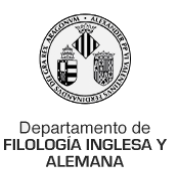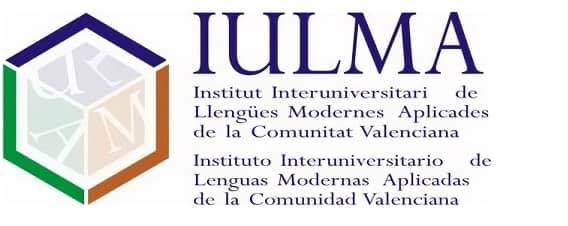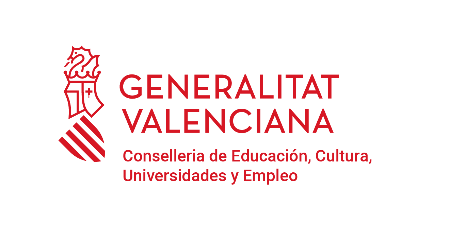Call for Papers
9th International Conference on Figurative Thought and Language (FTL9)
Blending Minds and Machines: Figurative Language, Creativity, AI, and Computational Linguistics
University of Valencia, Spain
9–11 September 2026
Organized by The Cognitive Linguistics applied Research group (CLaRe2025-671)
Faculty of Philology, Translation and Communication, University of Valencia
The 9th International Conference on Figurative Thought and Language (FTL9) continues the tradition of regular forums for the discussion of links between figurative thought and language established in Thessaloniki (2014), Pavia (2015), Osijek (2017), Braga (2018), Sofia (2020), Poznań (2022), Genoa (2023), and Klagenfurt (2025).
FTL9 will focus on the theme Blending Minds and Machines: Figurative Language, Creativity, AI, and Computational Linguistics.
This edition aims to explore how figurative thought and language interact with artificial intelligence, computational modeling, and digital creativity, while continuing to embrace the broader cognitive, cultural, and linguistic perspectives that have characterized the FTL series.
We invite proposals for individual papers and theme sessions addressing figurative thought and language from a wide range of theoretical, empirical, and applied perspectives, including but not limited to: cognitive linguistics, cognitive science and psychology, neuroscience and philosophy of mind, cognitive semiotics and cognitive poetics, cognitive anthropology and communication studies, artificial intelligence and computational linguistics, translation and multimodal communication.
Methodological approaches may include corpus studies, experimental methods, synchronic and diachronic analyses, computational modeling, discourse analysis, and cross-linguistic or cross-cultural comparison.
Suggested topics include (but are not restricted to):
- Figuration in morphology, lexis, syntax, semantics, and pragmatics
- Figuration and grammatical constructions, categories, and parts of speech
- Figuration across discourse types: politics, media, science, healthcare, law, business, literature, education, sports, religion, etc.
- Corpus-based, experimental, and statistical approaches to figuration
- Diachronic, sociocultural, and cross-linguistic perspectives on figuration
- Figuration, ideology, and social cognition
- Figuration, rhetoric, persuasion, and manipulation
- Figuration, creativity, and conceptual blending
- Figuration and artificial intelligence; cognitive modeling of figurative processes
- Figurative reasoning in human–machine interaction
- Emotion, cognition, and figuration
- Figuration in problem solving, decision making, and communication
- Figuration and cognitive development (acquisition, processing, comprehension)
- Figuration and pedagogy; figurative language in teaching and learning
- Multimodal figuration: images, gestures, music, and digital media
- Figurative gestures and sign languages
- Figurative language and computational creativity
- Humour, irony, sarcasm, and other rhetorical tropes (antithesis, euphemism, hyperbole, metonymy, synecdoche, etc.)
Theme Sessions
Proposals for theme sessions (thematically cohesive panels) are invited.
Deadline for theme session proposals: 15 February 2026
Notification of acceptance: 1 March 2026
Theme session proposals should be submitted by email (as a .pdf or .docx file) to clarecog@uv.es
Proposals should include: title of the session, name and affiliation of the convener(s), description of the session topic and research questions (max. 1000 words, excluding references), list of authors and titles of individual papers, and all individual abstracts in the proposed order.
Theme sessions should include 4 to 6 papers and encourage diversity of institutional and geographical affiliations. Once accepted, all abstracts will undergo peer review following the guidelines below.
Submission of Abstracts
Deadline for all abstracts (general and theme sessions): 31 March 2026
Notification of acceptance: 30 April 2026
Presentations will last 25 minutes in total (20 minutes for the presentation + 5 minutes for discussion).
Abstract guidelines:
- Languages of the conference: English, French, Spanish or Catalan.
- Abstracts should not exceed 500 words (including examples but excluding references and figures) and should be at least 250 words.
- All works included in the reference list must be cited in the abstract.
- Include 5 keywords and clearly state research questions, approach, method, data, and (expected) results
- The abstract must be sent to clarecog@uv.es, together with a brief biodata (max. 50 words). Please click here to download the template for the abstract.
- In the body of the email, please include the following information: (1) name(s) of author(s), (2) affiliation(s), (3) title of the presentation, (4) the conference topic(s) your proposal addresses, and (4) the author(s)’ email address(es).
- The subject header of your email should include: FTL9 abstract submission – Name(s).
All abstracts will be peer-reviewed anonymously by members of the Scientific Committee.
Publications:
A selection of conference papers will be published in:
1. An international edited book volume (Q1 SPI)
2. A special issue of an international peer-reviewed journal
All submissions will undergo external peer review. Participation in publication is optional.
FTL Young Researchers’ Award
The FTL Young Researchers’ Award (FTL-YRA) will recognize three outstanding contributions by early-career scholars (PhD candidates or those who have obtained their PhD within the past five years). The award committee will evaluate submissions based on scientific merit, innovation, and contribution to the field. Winners will receive a certificate of recognition and a sponsored gift.
We look forward to receiving your contributions and to welcoming you in Valencia!
Organizers, sponsors, collaborators




